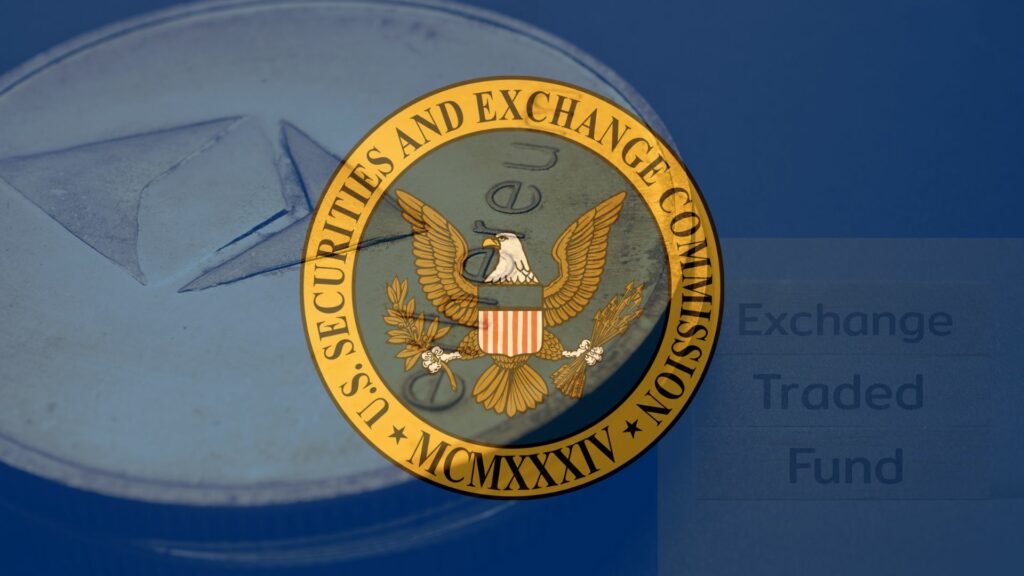In a landmark decision that marks a significant victory for the cryptocurrency community, the US Securities and Exchange Commission (SEC) has approved the first-ever Ethereum Spot Exchange-Traded Fund (ETF).
This move follows the approval of the Bitcoin Spot ETF earlier this year and represents a pivotal moment for the crypto market in 2024.
Chronology of the Ethereum Spot ETF Approval
Rumours about the SEC’s consideration of the Ethereum Spot ETF approval began circulating in early May.
Bloomberg analysts increased the likelihood of approval to 75% from an initial 25%, setting the stage for heightened anticipation ahead of the May 23, 2024 deadline.
Bumping this post. Seeing broad misconceptions that 'approvals' mean immediate launches of the #Ethereum ETFs. This isn't necessarily the case. There will be days (at a minimum), likely at least weeks, and potentially months between approval and launches here https://t.co/ecbgMjLN95
— James Seyffart (@JSeyff) May 21, 2024
This surge in confidence was bolstered when the SEC requested expedited updates for the 19B-4 filings, signalling a potential green light for the ETF.
SEC ASKS EXCHANGES TO UPDATE 19B-4 FILINGS ON AN ACCELERATED BASIS FOR SPOT ETHER ETFS: COINDESK
— db (@tier10k) May 20, 2024
Source: DB | Coins: ETH
On May 23, 2024, the SEC staff alerted exchanges about the imminent approval of the Ethereum Spot ETF. In response, Grayscale submitted a revised 19B-4 filing for their Ethereum Mini Trust, while at least five other potential issuers also updated their amendments.
Polymarket betting odds for ETF approval skyrocketed, reflecting the market’s excitement and speculation.
However, it’s important to note that the approval of the 19B-4 filing takes time to launch the ETF for trading.
The S-1 document still needs SEC approval, which could take several weeks to months. Despite the overwhelmingly positive sentiment, this procedural nuance has kept some market participants cautious.
Political Implications of the Ethereum Spot ETF Approval
The approval of the Ethereum Spot ETF carries profound political implications. By endorsing the ETF, the SEC essentially recognizes Ethereum and similar altcoins as commodities rather than securities.
This decision weakens previous assertions by prominent figures like Michael Saylor, who had argued that Ethereum would not gain acceptance from institutional investors or Wall Street.
The political landscape surrounding cryptocurrency in the US has evolved significantly. With over 50 million Americans holding crypto assets, the topic has become a crucial point of debate.
Notably, younger demographics, particularly those aged 18-45, are more likely to own crypto assets, contrasting sharply with the mere 5% ownership among those over 65. As these younger generations gain economic and political power, their influence on policy is expected to grow.
In recent weeks, political figures like Donald Trump have publicly expressed their openness to cryptocurrency.
Trump even launched a fundraising page for his presidential campaign that accepts crypto donations, signalling a shift in the political narrative.
Additionally, bipartisan support in Congress for crypto-friendly legislation has been evident, as seen in the recent votes against SEC’s stringent rules and for clearer regulatory frameworks.
Speculation and Market Reaction
The market’s reaction to the Ethereum Spot ETF approval has been mixed. While some analysts foresee a bullish trend due to the expected inflows once the ETF starts trading, others highlight the potential for outflows from existing funds like Grayscale’s ETHE, which holds significant amounts of Ether.
Despite the approval, Ethereum’s price movement has been relatively subdued, possibly due to the anticipation already being priced in by early investors.
The ETF itself will not begin trading until the S-1 document receives final approval, leaving room for further speculation and positioning by market participants.
In the long term, the recognition of Ether as a commodity and the facilitation of institutional investment are expected to be highly beneficial for the crypto ecosystem.
This milestone demonstrates that Bitcoin is not the sole institutional-grade crypto asset, paving the way for broader acceptance and integration of digital assets in traditional financial markets.
Conclusion
The approval of the Ethereum Spot ETF is a monumental achievement for the cryptocurrency industry, reflecting years of advocacy and education by crypto proponents.
As the regulatory landscape continues to evolve, this decision marks a step towards greater clarity and acceptance of digital assets in the US.
The crypto community can look forward to a future where Ethereum and other altcoins are not only recognized but also thrive in a regulated and supportive environment.

